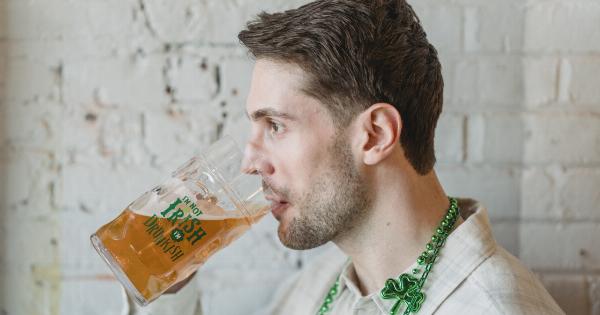Alcohol consumption is a common practice for many people around the world. For some, it is a means of celebration, while for others, it is an escape from stress or anxiety.
However, when alcohol use becomes excessive and begins to interfere with daily life, it may be a sign of a larger problem.
Alcoholism, also known as alcohol use disorder, is a chronic disease that affects millions of people worldwide.
According to the National Institute on Alcohol Abuse and Alcoholism, nearly 15 million adults in the United States have an alcohol use disorder.
Here are eight key signs that suggest you may have an alcohol problem:.
1. You Drink to Cope with Stress or Anxiety
If you find yourself reaching for a drink every time you feel stressed or anxious, it may be a sign that you use alcohol as a coping mechanism.
While alcohol may provide temporary relief, it is not a healthy or effective long-term solution for managing stress or anxiety.
2. You Drink Alone
If you frequently drink alone, it may be indicative of a larger issue. Drinking alone can be a sign of isolation, depression, or even a dependence on alcohol.
It may also lead to increased alcohol consumption and a higher risk of alcohol-related problems.
3. You Drink More Than You Intend to
If you have trouble controlling your alcohol consumption, it may be a sign of alcohol use disorder.
Binge drinking or consuming more alcohol than intended can have significant health consequences, including an increased risk of liver disease, heart disease, and cancer.
4. You Experience Withdrawal Symptoms
Withdrawal symptoms, such as sweating, shaking, and nausea, are an indication that your body has become dependent on alcohol.
If you experience withdrawal symptoms when you try to quit drinking, it may be a sign that you have developed an alcohol use disorder and should seek treatment.
5. You Neglect Responsibilities
If you find that your alcohol use is interfering with your daily life, it may be a sign of a larger problem. Neglecting responsibilities, such as work or family, to drink can have serious consequences and may be indicative of an alcohol use disorder.
6. You Continue to Drink Despite Negative Consequences
If you continue to drink despite negative consequences, such as relationship problems, legal issues, or health concerns, it is a sign that you may have an alcohol problem.
Persisting with harmful behavior despite negative outcomes is a hallmark of addiction.
7. You Have Tried to Cut Down or Quit Drinking But Have Been Unsuccessful
If you have attempted to cut down or quit drinking but have been unsuccessful, it is a sign that you may have an alcohol use disorder. Seeking professional help may be necessary to overcome alcohol addiction.
8. Your Friends or Family Have Expressed Concern About Your Drinking
If friends or family members have expressed concern about your drinking, it is important to take their concerns seriously.
It is common for individuals with alcohol use disorder to deny the extent of their problem, but a willingness to seek help is the first step towards recovery.
Conclusion
If you identify with any of the above signs, it may be time to seek professional help. Alcohol use disorder is a serious condition that can have significant health, social, and economic consequences.
Fortunately, there are many treatment options available for those struggling with addiction.




























